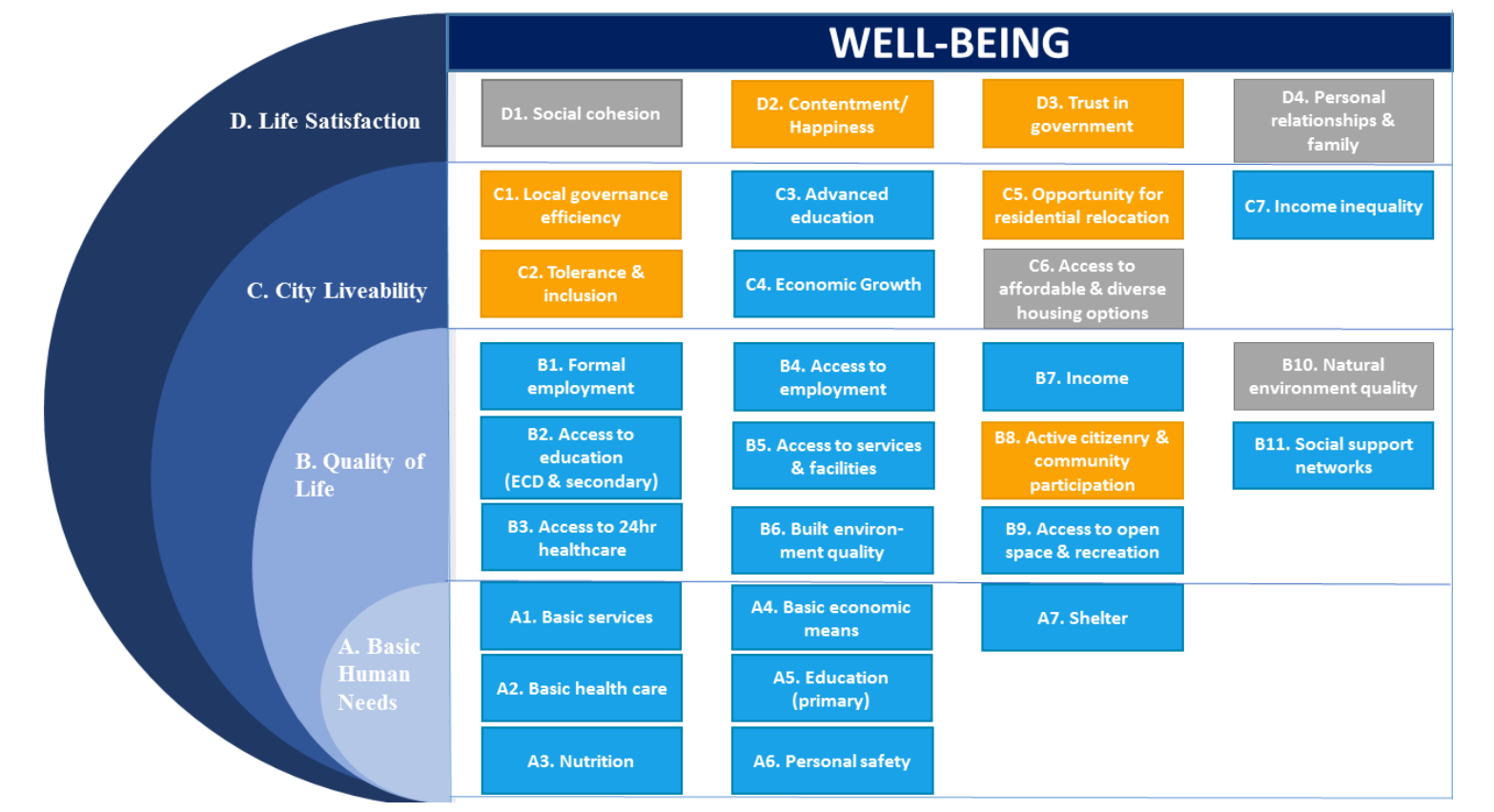The Spatial Determinants of Well-Being in South African Cities

31 March 2018
Tansy Argue
English
uKESA Librarian 2, Matsubu Ragoasha
Report
Council for Scientific and Industrial Research
Africa
The South African Cities Network commissioned the Council for Scientific and Industrial Research to explore how spatial factors influence human well-being in South African cities (PDF, 4.62MB). The study emphasises the importance of inclusive urban growth and sought to understand barriers that prevent people from achieving well-being, particularly within the context of spatial justice. It provides a framework and indicators to monitor well-being at sub-city levels.
Key Points:
- Background: Urban well-being is increasingly being linked to spatial geography. Cities are central to economic growth but face challenges such as poverty, unemployment, and inequality. Well-being is significantly influenced by urban development and the physical environment.
- Purpose and Relevance: The study aims to provide an evidence-based understanding of well-being to inform urban planning and policy. It is part of broader efforts, such as South Africa's National Development Plan (NDP) and the Integrated Urban Development Framework (IUDF), to achieve spatial justice, transformation, and equitable access to opportunities.
- Approach: The study involves a literature review of well-being components, followed by mapping and testing of indicators in selected cities. The goal is to create a framework for comparing cities and assessing progress towards improving well-being, particularly for marginalised communities. It acknowledges that well-being is not just determined by spatial factors but also non-spatial aspects like social networks and personal agency. The framework aims to track well-being indicators over time to assess city-level progress and promote inclusivity.
- Objectives: The project focuses on defining well-being, identifying spatial barriers, and developing a framework to evaluate well-being at a local level. It also aims to test the framework through case studies and make recommendations on additional indicators and data collection methods.
- Conclusion: The study is exploratory, aiming to provide a foundation for understanding the spatial determinants of well-being and identifying barriers to inclusivity. It seeks to inform policy actions that can improve the quality of life and foster spatial justice in South African cities.
The study informed SACN's Spatial Determinants of Wellbeing Paper Series.
Abstract based on original source.


Comments